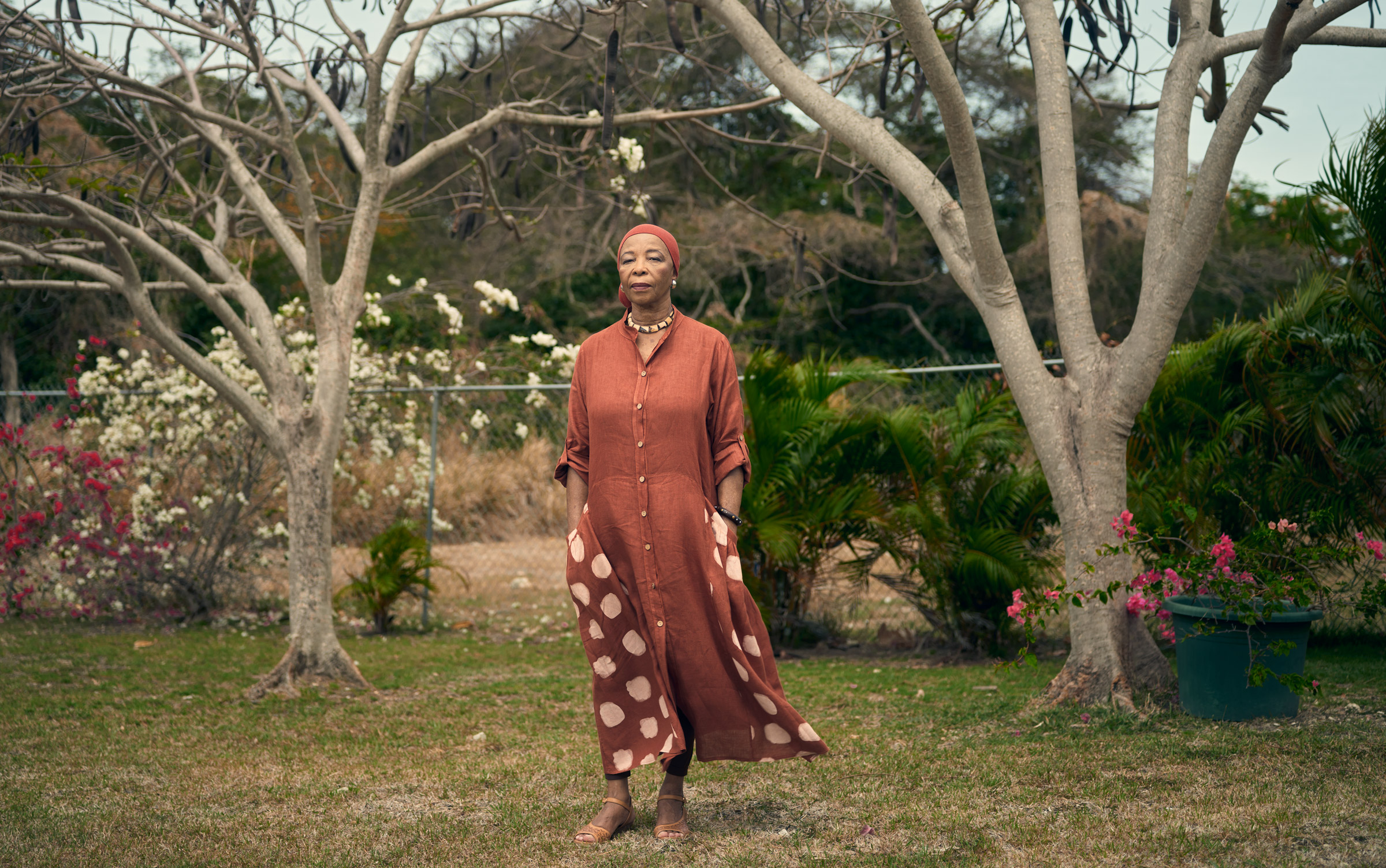When we reach the dirt road leading to Drax Hall plantation, Esther Phillips suggests we stop the car. Phillips, 73, gets out and draws in a deep breath. There’s a faint, sweet smell of something akin to rum out here, about eight miles from the capital city. The dried remains of sugarcane, burned then harvested, flank the road.
This is about as close as she can get.
Drax Hall, a Barbados plantation where sugar has been reaped for nearly four centuries, was for so long just an ordinary part of what Phillips understood as her wholesome childhood. She grew up nearby, skipping across the grounds to school. She remembers gathering milk from cows here, hearing stories about a relative working in the big house, caring for the child referred to as the Young Missy. She remembers her grandfather overseeing a crew of women in the plantation’s Negro (or another N word) yard. Built in the early 1650s, Drax Hall is believed to be the oldest Jacobean structure in the western hemisphere. And it’s here that enslaved Black labor and, later, people existing somewhere between slavery and freedom, did the dangerous work to make others sugar-rich.
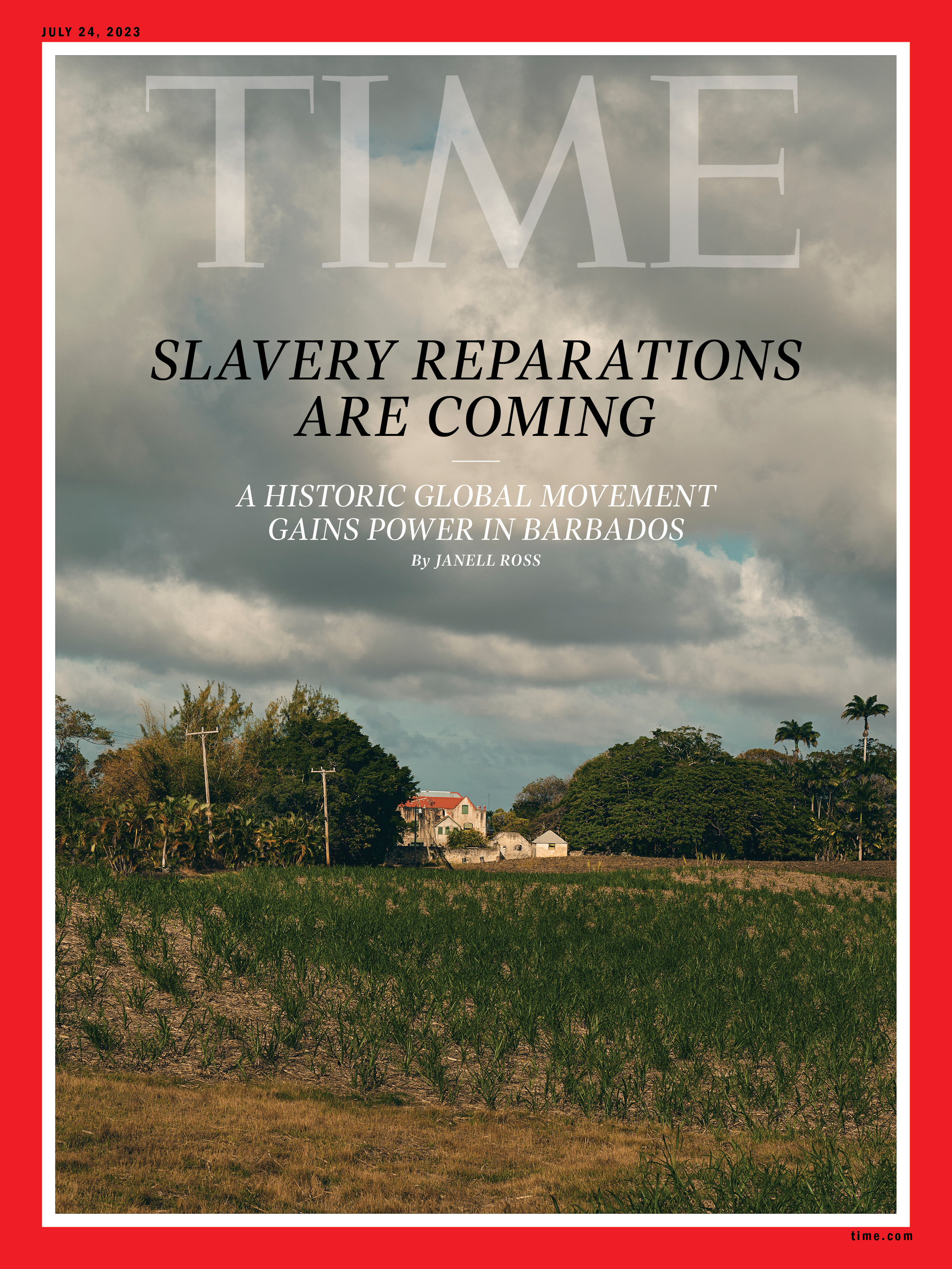
But Phillips, the island’s first poet laureate, now describes herself as persona non grata here, something she came to believe after a conversation with a staff member when she called to request access. Road signs describing the property as private appeared around that time too, she says. Her apparent offense: In late 2021, with part of the hall in the frame, Phillips read from what she calls her Plantation Poems for a British TV crew. In spare, evocative language, they explore Phillips’ dawning factual and emotional understanding. Drax Hall—which now belongs to Richard Drax, a Conservative member of the British Parliament and part of an unbroken family line of Drax Hall heirs—was the site of untold horrors. Her island home is a place where mass production with enslaved labor was so optimized for profit that the brutal, local way was exported to other colonies.
More from TIME
Like Phillips, people here, and all over this region, have become increasingly insistent that apologies with meaningful recompense are overdue.
The idea that people held captive and robbed of their labor are owed reparations has been discussed by enslaved people for centuries. It shows up in 17th century Barbados court cases filed by the few who wrestled their way to freedom, says Sir Hilary Beckles, a Barbados-born historian and author of Britain’s Black Debt. The idea also occupies space in a 1775 essay by the colonial American political theorist Thomas Paine. More recently, reparations supporters have pushed past mere debate.
Read More: Juneteenth Is Now a National Holiday. Are Reparations Next?
In the U.S., two federal reparations bills have stalled. States, cities, and institutions have taken steps on the issue, though even these relatively small-scale programs have often been met with outrage and disdain. In 2021, Evanston, Ill., moved first, launching a $10 million reparations program. Phase 1: a lottery aiming to give about 16 Black families homeownership assistance of up to $25,000 each, less than 10% of the city’s median home value. That generated significant misinformation and complaints of racial discrimination against non-Black residents. A San Francisco committee released a proposal in January calling for lump-sum payments of $5 million to eligible individuals, spurring instant backlash. Since May, a statewide California task force has made public its own reparations recommendations—40 chapters of research on resolving vast inequality—while the New Jersey Institute for Social Justice has launched a council to conduct a study of the impacts of slavery, and New York lawmakers have approved something similar.
Elsewhere, the Netherlands has apologized for its role in the slave trade. The Church of England has identified ways that one of its arms profited from enslavement and set aside a £100 million ($127.63 million) fund to address racial inequality. The new King of England has agreed to a study of the monarchy’s already documented ties to the slave trade, though the nation’s new Prime Minister Rishi Sunak, the first Indian-British person in that role, has rejected calls for reparations.
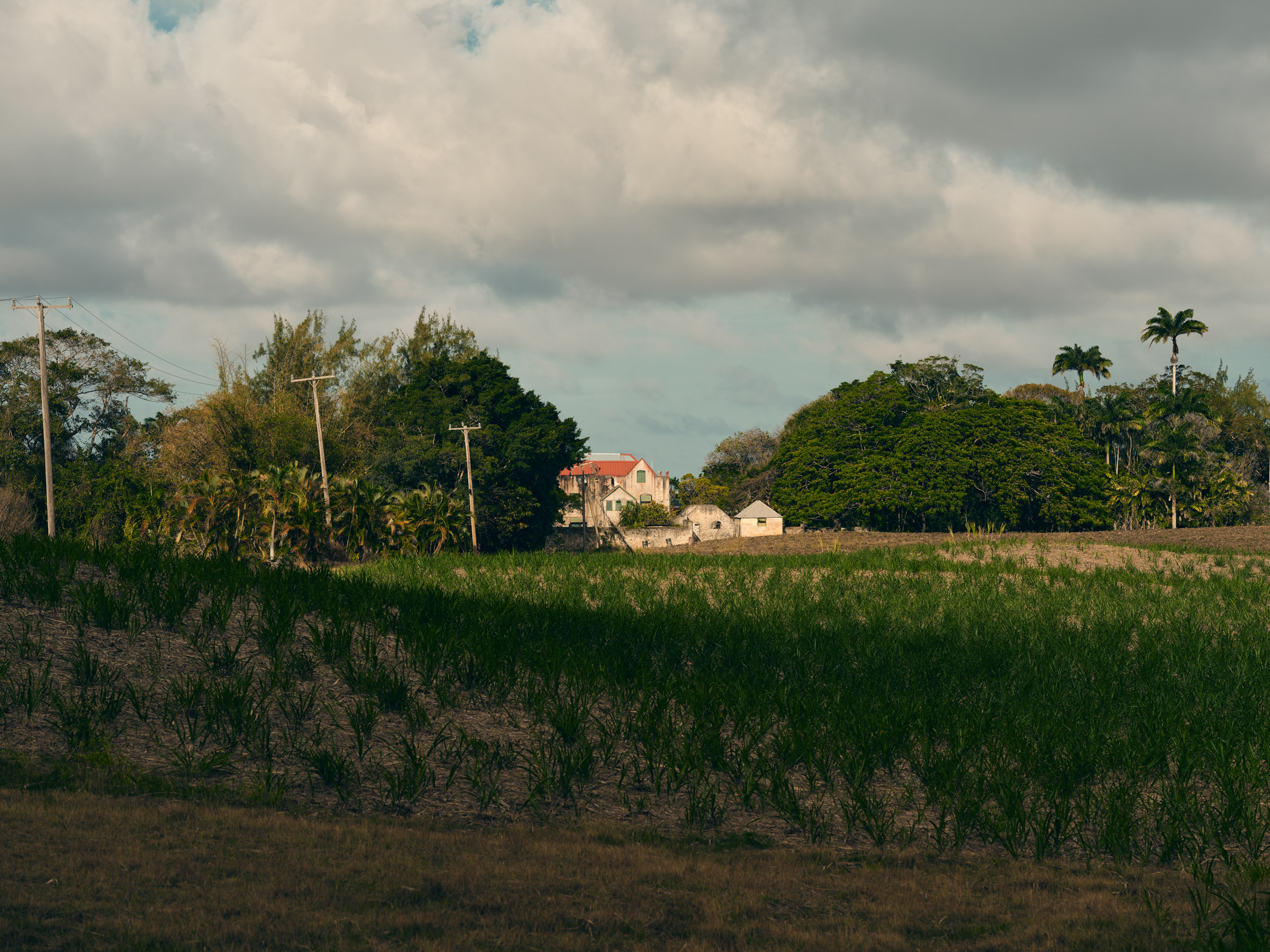
On Barbados, reparations have moved from a fringe idea to a thing everyone is talking about. And this island, long regarded—some would say intentionally misconstrued—as so compliant with the colonial project that it is sometimes called Little Britain, has moved into a regional leadership position.
“Barbados is that country,” says Dorbrene O’Marde, chairman of the Antigua and Barbuda Reparation Support Commission and vice chair of the regional CARICOM Reparations Commission. (CARICOM, or the Caribbean Community, is an intergovernmental organization with 15 member and five affiliated states.) CARICOM’s Prime Ministerial Sub-Committee on Reparations for Native Genocide and Slavery, five elected officials led by Barbados’ Prime Minister Mia Mottley, is expected this year to request that 10 European countries begin negotiations for reparations. Almost a decade ago, CARICOM’s Reparations Commission developed a 10-point plan calling for, among other things, a careful accounting of what occurred; formal apologies; attention to the psychological and cultural toll of centuries of oppression; European funding to strengthen infrastructure, education, and health care; and debt forgiveness. European countries rebuffed this request, but an updated 10-point plan will be finalized in the next few months, O’Marde says.
This year’s demand for reparations—which will call for a Marshall Plan–like public investment, not the individual payments that have dominated the conversation elsewhere—will arrive with more force. African countries, about two decades after they were first asked, have agreed to support the claim, and CARICOM officials have built alliances with reparations activists in the U.S. The letters are expected to say the time has come to negotiate reparations to improve infrastructure and human conditions in the Caribbean. Come to the table, they will say, or prepare to see much of the Caribbean in international court. Lawyers who won a reported £14 million ($17.86 million) settlement in 2012 on behalf of three Kenyans brutalized by the British have been retained.
“I heard a speaker a couple of days ago quoting Lenin, and the quote is stuck in my head,” O’Marde says before paraphrasing the Russian revolutionary. “You are in struggle, and sometimes a decade passes and nothing happens. And then, all of a sudden a week comes and a decade happens. That is where we are at this point in time. A decade has happened for us within the last year or so.”
To understand how an island, only about 14 by 21 miles, became the arguable center of a global push for reparations, it helps to grasp its role in what Matthew Parker, author of The Sugar Barons: Family, Corruption, Empire, and War in the West Indies, described as an “agricultural revolution almost unrivaled” in terms of its “economic, political, and human consequences.”
When British settlers came to Barbados in February 1627, James Drax, one of about 50 colonists and 10 enslaved Africans who arrived on the first settler ship, decided on an inland property. Drax, Parker tells me, was the second or third son of a not rich but not poor clergyman in England, where inheritance traditions so favored firstborn sons that he needed to make his own way. He arrived in Barbados at 18 determined to try.


Drax was among the first Barbados colonizers to switch from other crops and grow cane with the stolen labor of Africans and their descendants exclusively, Parker tells me. Within a few years of Drax’s start in the early 1640s, he and other planters had produced so much sugar that a period on the island known as the Sugar Revolution had begun. “Barbados gets there first at a time when the price of sugar was still really, really high,” Parker explains. Other islands would follow.
The enormous profits inspired the world’s first slave codes, legislated in Barbados in 1661. The laws delineated rights and restrictions on the lives of Black and white people, and helped establish beliefs about who deserved what that are still in circulation today, Kevin Farmer, deputy director of the Barbados Museum and Historical Society, tells me. The profits were so substantial that Barbados planters ranked among the investors in the British East India Company. In the 18th century, one of James Drax’s descendants helped to write the literal book—Instructions for the Management of Negros, sometimes referred to as The Instructions—on how business, in the Barbados plantocracy’s view, should be done.
Read More: What a Florida Reparations Case Can Teach Us About Justice in America
Though they were hardly the only colonists to get rich, the extended Drax family would become so wealthy that they also built a sizable plantation in Jamaica, and endowed universities on both sides of the Atlantic. Today they remain the owners of Drax Hall and its more than 600 acres on Barbados while just about every other plantation here has changed hands. Richard Drax is also the largest individual landowner in the English county he represents in Parliament.
That’s the thing about an island where even today the population remains close to 285,000. People and places are closely connected. Time-yellowed records in the Barbados National Archives and the museum link specific but long-dead people to the living.
In July 2021, Phillips published an open letter in Barbados Today under the headline pay up, mr. drax.
She had read an article in which Richard Drax said slavery was regrettable but he didn’t see himself as culpable. “That really got me very, very upset,” Phillips tells me as we sit in her back garden. “This man has profited and still profits by the largesse, the wealth, all that was poured out for him through the sacrifice of my ancestors. And the only thing he can find to say is it is ‘regrettable’?” (Drax did not respond to multiple requests for comment from TIME.)
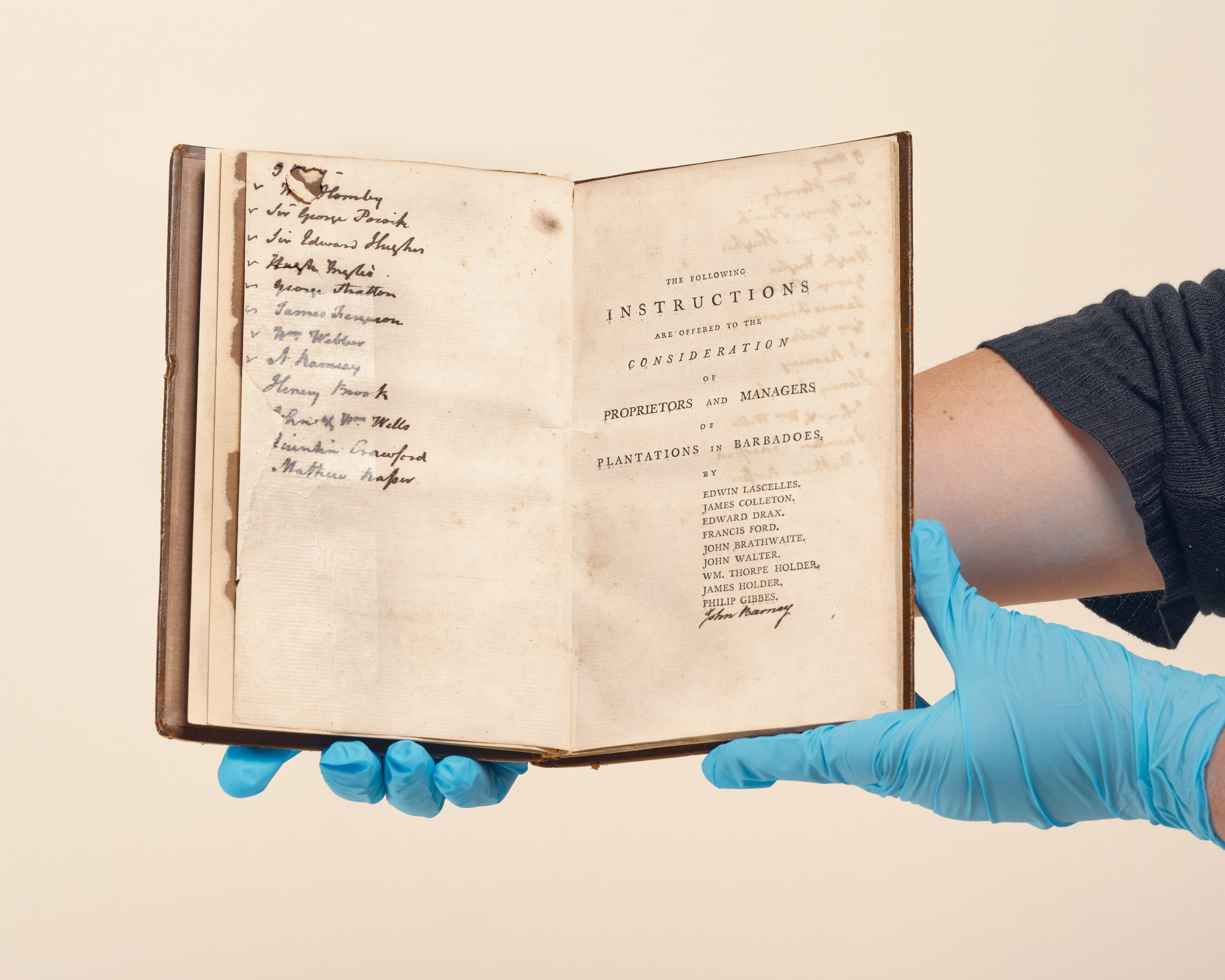
“I personally want nothing from Richard Drax,” Phillips says. “But if I were Richard Drax, I would be so glad to get rid of that [Drax Hall]. I would say let me give it up to show that I have some kind of feeling for the horrors, for the people who were brutalized.” Drax Hall, Phillips says, should become a museum and agricultural school.
This is representative of Phillips’ current thinking. She taught English literature for years and took great pride in her ability to recite swaths of Shakespeare. She still credits him with the way she uses language. But she also recognizes the notion that what was British was best was so pervasive that she didn’t encounter people who made a serious study of West Indian history and literature until the late 1970s.
“Everything was done to move you away from the world of anything that was Black, anything that was African,” Phillips says, “and even the Black people wanted, as much as possible, to move away from the plantation, understandably.”
About seven years ago, however, she attended a history lecture at the University of the West Indies at Cave Hill, Barbados. About 450,000 enslaved people were trafficked to Barbados. Of these about 375,000 arrived alive. When emancipation came in 1838, only about 83,000 of them and their descendants survived. As many as 30,000 enslaved people are believed to have died on Drax plantations here and on Jamaica alone, Beckles found in his research.
Part of Phillips was stunned. Another part remembered the one thing her grandmother had told her about her own enslaved grandmother, a woman known in the family as a “rebel woman” who repeatedly ran away and was sold several times as a result. This dark-skinned woman was mother to a pale-skinned child, often seen strapped to her body. “You have to wonder how she got that child,” Phillips says. “Well, you don’t have to wonder, when rape was commonplace …”
Phillips realized how much she had failed to understand and how much had been concealed. She began to wonder where her ancestors’ bones were buried at Drax Hall and other plantations. All she knows is that burials likely happened to the west of the big house, she says, to keep the smell of death out of the air. Anything more she can’t know without access to Drax Hall’s records. And while some were left with the Barbados archive on “indefinite loan,” by an H.W. Drax in 1970, and others have sat bound inside public record books of wills and deeds dating back to the 1600s, “select records,” a note in the national archives indicates, “have from time to time been removed to England.” Richard Drax’s father, who died in 2017, told Parker that many of these records were lost in a fire.




Phillips is in England now. She’ll spend months engaged in public readings, deep thought, and research about the lives of women enslaved in the -Caribbean. This type of work has already produced Plantation Poems summoning images of her ancestors, who, in her verse, “gifted me their silence”—a complex choice made in hopes of letting a future “girl child walk free, unhindered into the new world,” unfettered by forced labor, unwanted touch, or full knowledge of the global taste for white supremacy and profit. It’s a process that several months ago prompted Mia Mottley to stand at one of Phillips’ readings, end several seconds of shocked silence, and declare Phillips’ work full of truth that people need to hear.
When I ask Peter Laurie, Barbados’ ambassador to the U.S. during the Reagan Administration and a chronicler of the island’s social history, when support for reparations began to bubble, he said almost immediately after emancipation in 1838. Later, when Barbadians returned from World War I and from helping to build the Panama Canal, they brought ideas challenging Barbados’ then nearly all-white power structure. Still, as late as the 1950s, outsiders researching the Caribbean described Barbados as the most “notoriously racist” place in the region. Ads for jobs often included requirements like a “good complexion,” says Laurie, who is white. “And they did not mean being acne-free.”
Momentum built over time, says Rodney Worrell, a lecturer in history at the University of the West Indies at Cave Hill. A Pan-African movement in the early 1900s gave way to a labor uprising in the 1930s. Independence in 1966, the Black Power movement in the 1970s, and the spread of Rastafarian ideas emboldened a growing share of the island. The death of George Floyd and protests in 2020 prompted other changes. Chief among them: Barbados, in 2021, became a republic. (At the same ceremony Rihanna was named a national hero.)
Read More: Mia Mottley: Here’s How to Actually Make Rich Countries Pay for Their Climate Impact
Injecting energy into the current movement are the people who have risen to positions of power. First elected Prime Minister in 2018, by the largest margin in the island’s history, Mottley, 57, is Barbados’ first female leader, and she has proved adept at linking seemingly disparate phenomena. For centuries, raw goods that slaves produced in the Americas were shipped to Europe, making white people wealthier, nouveau riche, or at least consistently employed. The riches were used to build European industry and infrastructure and fuel the Industrial Revolution. The resulting economies unleashed large shares of the greenhouse gases now imperiling the Caribbean. Anger is growing, Mottley has warned. What aid world organizations have sent arrived with what she has characterized as ludicrous and predatory terms. At a New York gathering this year, Mottley mentioned one loan with an interest rate of 400%, and the way that Global South leaders are routinely limited at international events to brief introductions of those regarded as more important.
Mottley is one of several people on this island who make me think of one of my father’s favorite films, The Spook Who Sat by the Door. In it, a young African American man presents as an educated defender of the establishment, joins the CIA’s training program, then quits and uses what he learned to foment revolution. A law-school graduate of the London School of Economics, Mottley began her journey to the vaunted European institution at Queen’s College, a prestigious test-to-enter public school on land donated by a Drax descendant.
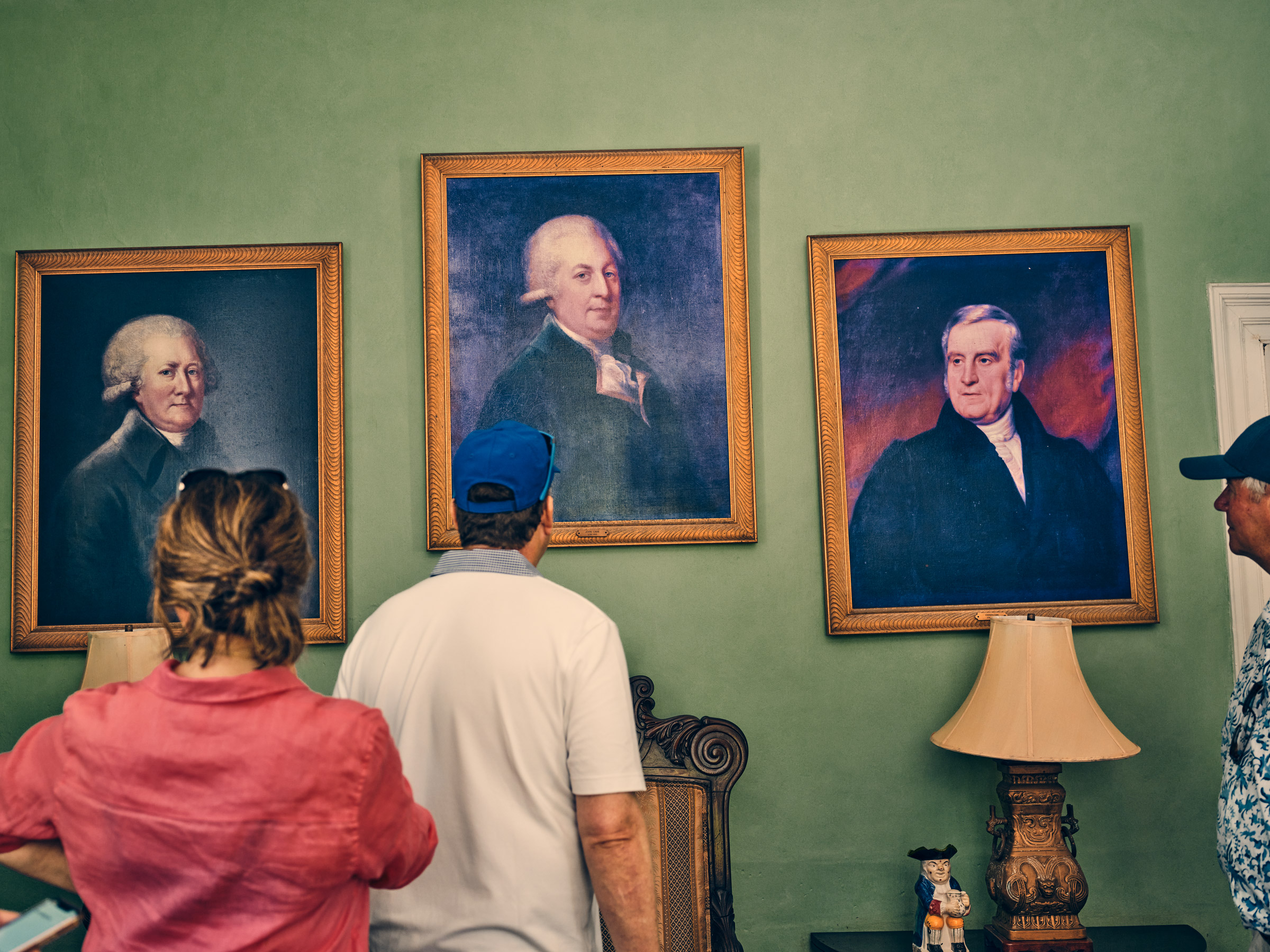
Another of those people is Beckles, the historian and chairman of the CARICOM Reparations Commission, who is now the University of the West Indies’ vice chancellor. Guy Hewitt, head of the Church of England’s racial-justice initiative, which will manage the £100 million fund, is also Barbados born. And David Comissiong, who attended high school at Harrison College, known as the Eton College of Barbados, is deputy chair for the Barbados National Task Force on Reparations, which has worked since 2012 to develop the government’s position on reparations.
“I’ve been doing this my whole adult life,” says Comissiong, a lawyer who at 26 became the youngest member of the Barbados Senate. But, he tells me, on Barbados something shifted when former Prime Minister Freundel Stuart in 2015 expressed support for reparations, giving it a “whole new respectability.”
“When we first started,” Comissiong, now 63, tells me, “there were not many people who believed that anything would come of reparations. Many people thought it was just some kind of vulgar money grab.”
I ask about headlines describing plans to seek reparations from British actor Benedict Cumberbatch, whose family owned St. Nicholas Abbey, a sugar and rum plantation, for about 200 years. (Representatives for Cumberbatch said he was unavailable to comment.) Comissiong says that reporting is wrong. The action Barbados takes now will be limited to the CARICOM plan, he says. But given that Richard Drax has a sugar operation here, a business directly connected to what James Drax began around 1640, the national task force believes he should engage on the issue.
Recompense from wealthy individuals wouldn’t be unprecedented. Heirs of Slavery, an initiative founded in April by British aristocrats and many others whose families profited from enslavement and received large sums from the British government at emancipation, has committed to paying what they describe as voluntary reparations and called on the King to consider the same.
“None of us, in my generation or the generation above, had any idea that our family was associated with the slave trade,” says Laura Trevelyan, one of the founders. “It was just really shocking.” She believes recognition that “slavery was abhorrent” and substantive apologies are necessary, and reconciliation is impossible without both.
If Manhattan is an island defined by its street grid, Barbados is an island where plantations function in much the same way. In Bridgetown, a plaque identifying the spot where a slave cage once sat hangs on the exterior of a bank. Sugar-mill smokestacks and windmills punctuate the countryside. The past is present almost everywhere, acknowledged or not.
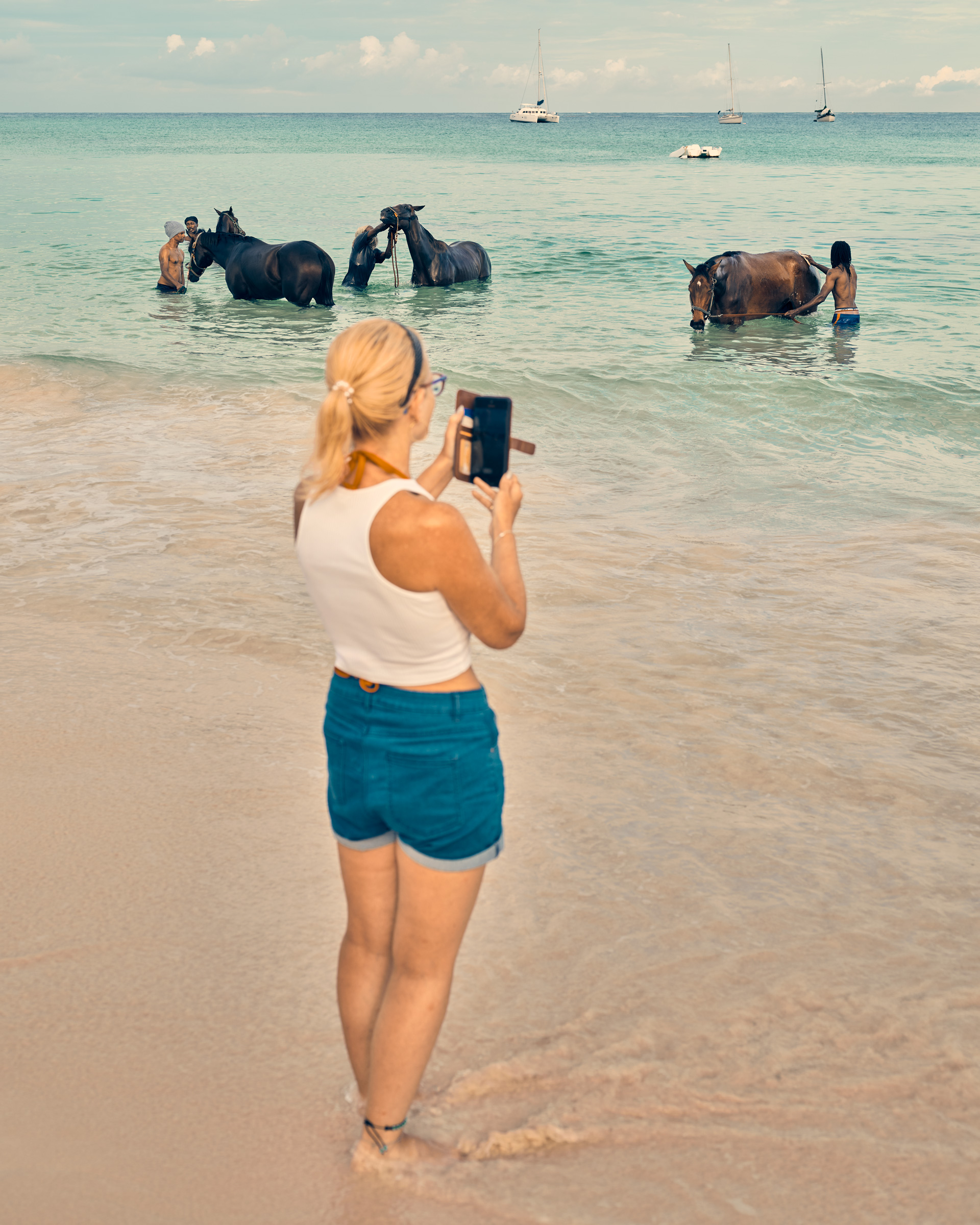
I am reminded of that when, just south of Drax Hall, I happen upon Kyle Blackmen overseeing agricultural workers planting sweet potatoes. For Blackmen, 30, foreman work is a choice—he’s always loved the outdoors and science. But for many of the others, this is the destination to which life pushed them. One worker asks my colleague, a photojournalist, what he will pay for her image. When he explains this is verboten in U.S. journalism, she moves away. The average farmworker takes home about 400 Barbados dollars ($200) each week, Blackmen tells me.
This is an island where private businesses remain overwhelmingly owned by white Bajans, as residents of Barbados are sometimes known. The pandemic has delayed assessments, but in 2016, Barbados’ Gini coefficient, a measure of income distribution, represented the largest gap in the Eastern Caribbean and sat almost 7 points higher than inequality in the U.S. and nearly 14 points higher than in the U.K. Diabetes and high blood pressure are so common that signs along every major highway describe ways to manage the conditions. Scientists have long pointed to diet and exercise as reasons they disproportionately affect Black people throughout the Americas and are now exploring other possibilities: the body’s stress response to oppression, epigenetic effects of trauma, diets enslavers made available, farm and other chemicals to which previous generations were exposed.
I ask Blackmen about his family’s history. “Who among us,” he says, looking me dead in the eye, “does not have that particular connection to the land?”
Reparations are not a bad idea, Blackmen says, but will they transform the lives of the people in this field? “I have my doubts, to be honest, that England will ever pay a thing,” he says. “But I also have my doubts that even if something were worked out, the everyman will see anything from it.”
His skepticism is common, but support for reparations, at least in principle, is so widespread I have to hunt for the opposition. When I contact Richard Hoad, a goat farmer and the man whose name came up in several conversations as a white Barbadian columnist for the Nation Newspaper on record opposing reparations, he says that description is not quite accurate: He does not have a problem with reparations, he says.
He’s simply raised questions—why should this slave trade merit recompense and not the Roman campaign to subjugate much of Europe and North Africa? White people suffered as indentured servants, so what are they owed?—and he opposes anything like a “witch hunt” making demands on individuals. Then he shares some ideas that will sound familiar in other parts of the Americas where white objections to reparations for enslavement are prevalent.
“I went to school with strong, robust, healthy Black comrades who beat the stuffing out of whites in most sports, were academically brighter and showed no signs of suffering inferiority because of their colour,” he wrote in an email. “Barbados has opportunities for those who take them. Even back in 1818 London Bourne [a Black abolitionist] got his freedom from slavery, became a wealthy Bridgetown businessman and owned two plantations … East Indians landing here with no money, not speaking the language, traded from suitcases to small vans. Nowadays they are owning more and more thriving businesses, live in lovely homes and are among our wealthiest citizens.”
He says Barbados is a “Black country,” and he disputes the idea that anyone alive now is affected by anything before emancipation or just after.
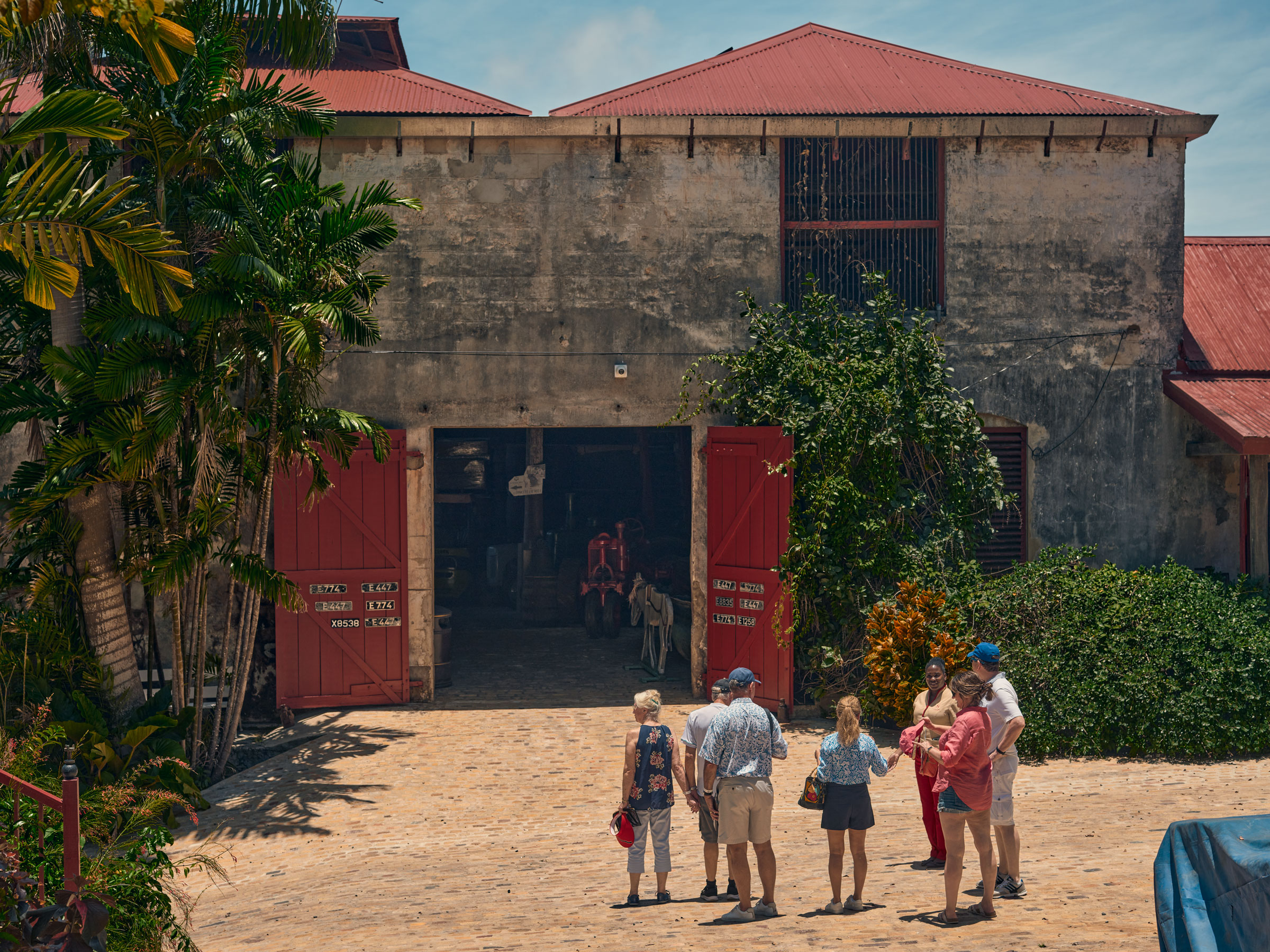
Many scholars and some legal experts disagree. At a February gathering over Zoom of the American Society of International Law’s Symposium on Reparations Under International Law, Judge Patrick Robinson, a Jamaica-born, London–trained lawyer and member of the International Court of Justice, said there is a sound legal basis for reparations for enslavement: Reparations are due if a crime against humanity has been committed or a country created or allowed a practice, system, or event in which each step violated international laws. Both are arguably met, but certainly the second, by the conduct and outcomes intentionally created by the transatlantic slave trade and almost 400 years of enslavement in the Americas, said Robinson, who oversaw the U.N.’s International Criminal Tribunal for the former Yugoslavia.
The concept of a crime against humanity was not established in international law until after World War II to address Nazi atrocities. Still, the concepts of humanity and natural rights are almost as old as time, he said. In 1815 many European governments ratified an agreement at the Congress of Vienna to abolish the transatlantic slave trade, “considered by just and enlightened men of all ages as repugnant to the principles of humanity and morality.” By then almost 300 years old, the trade had ended in British territory in 1807, but enslavement and related profit-making activities continued for decades. Because the same bigoted idea—Africans were undeserving of human rights—animated racially restrictive policy and practices after emancipation, Robinson said, the key condition has been met for reparations for at least some of the period after enslavement as well.
“There is an international obligation on the United Kingdom, France, Portugal, Spain, the Netherlands, Sweden, Denmark, and the United States of America to make full reparations to the descendants of those Africans whom they enslaved,” Robinson said.
The U.K. and most Western European countries are subject to the International Court of Justice and the International Criminal Court’s jurisdiction. (The U.S. withdrew from the former’s jurisdiction in the 1980s when it ruled the U.S. owed Nicaragua reparations, and it has not ratified the latter’s treaty.)
To put a dollar figure on what is owed, the symposium turned to Coleman Bazelon and Alberto Vargas from the Brattle Group, a Boston-based economic consulting firm, who worked pro bono to develop a conservative estimate but noted that some harms, like psychological damage, were difficult to quantify. The global reparations debt, they said, is $101.4 trillion. About $3.54 trillion is owed to Barbados alone. (In 2022, the U.K. GDP amounted to about $2.79 trillion.)
It’s impossible to know at this stage what will happen when CARICOM makes its requests, but William “Sandy” Darity Jr., director of the Samuel DuBois Cook Center on Social Equity at Duke University and one of the world’s leading experts on reparations, points out that the situation in the Caribbean differs from the one in the U.S. where Black Americans are asking their own government for resources. In CARICOM countries the overwhelming majority of citizens were subjected to colonialism and enslavement, “so it is reasonable to consider reparations taking the form of state-to-state payment,” he says, noting that possible support from third-party arbiters could be helpful but won’t eliminate all opposition inside former colonial countries.
Phillips for years dismissed reparations as radical, then unlikely and unnecessary for people who would have to do their best to build on what they had. Today she’s an unwavering supporter. “If something of such horror is revealed and you’re still benefiting from the proceeds, you cannot turn your head and say, ‘Well, what has that to do with me?’” —With reporting by Simmone Shah and Julia Zorthian □
More Must-Reads from TIME
- L.A. Fires Show Reality of 1.5°C of Warming
- Home Losses From L.A. Fires Hasten ‘An Uninsurable Future’
- The Women Refusing to Participate in Trump’s Economy
- Bad Bunny On Heartbreak and New Album
- How to Dress Warmly for Cold Weather
- We’re Lucky to Have Been Alive in the Age of David Lynch
- The Motivational Trick That Makes You Exercise Harder
- Column: No One Won The War in Gaza
Contact us at [email protected]
